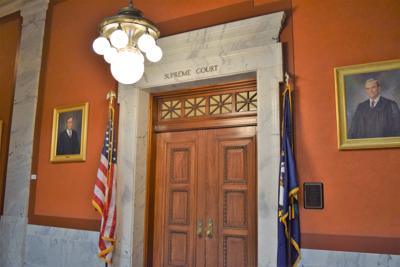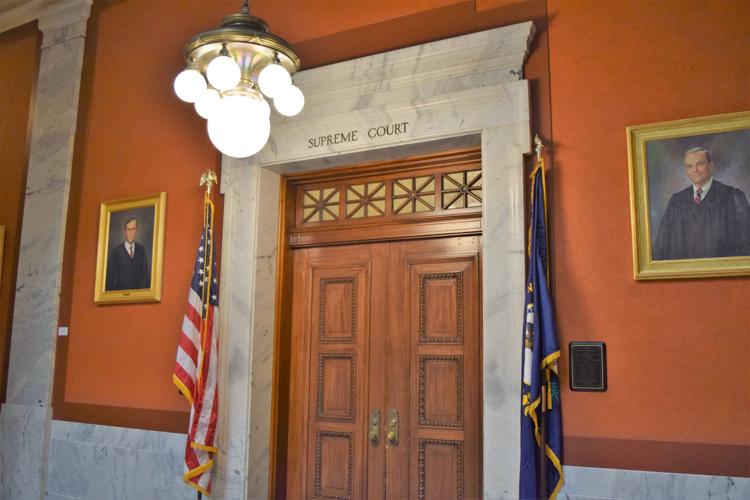FRANKFORT, Ky. — The Kentucky Supreme Court struck down Lexington’s ban on no-knock warrants Thursday, saying it conflicted with a state law that limits—but does not prohibit—such warrants during police raids. The ruling raises questions about Louisville’s similar ban enacted after Breonna Taylor’s death.
No-knock warrants allow officers to serve a warrant without knocking or announcing themselves and are typically used in drug raids to prevent evidence from being destroyed.
Taylor was shot by Louisville officers in March 2020 after they used a no-knock drug warrant to enter her home. Her boyfriend fired at the officers as they entered, and officers returned fire, striking Taylor multiple times. No drugs were found in her apartment.
Her killing, along with George Floyd’s death in Minneapolis, sparked widespread protests against racial injustice and prompted Louisville officials to pass a ban on no-knock warrants later that year.
In its 4-2 ruling, the state Supreme Court said Lexington’s ordinance conflicted with a state law passed by the GOP-led Legislature and signed by Democratic Gov. Andy Beshear. The law sets strict limits on when no-knock warrants may be used, including requiring “clear and convincing evidence” that a person in a residence has committed or is suspected of a violent crime. It also generally prohibits serving such warrants between 10 p.m. and 6 a.m.—except in specific circumstances. Taylor’s apartment was raided after midnight.
Deputy Chief Justice Robert B. Conley, writing for the majority, said Lexington’s ordinance, which prohibited its police from ever seeking a no-knock warrant, was in “conflict, pure and simple” with the state law and is therefore “null, void, and of no effect.”
“The General Assembly, through this legislation, has made a policy decision that while no-knock warrants should be sparingly used and generally reserved for violent and dangerous persons, they should not be forbidden,” Conley wrote.
In a dissenting opinion, Justice Michelle Keller argued that Lexington’s ordinance did not conflict with state law and warned that the majority’s ruling “effectively [strips] local governments across the Commonwealth of their constitutionally vested authority.” Keller noted that the Legislature, aware of Louisville’s ban at the time, chose not to explicitly invalidate it.
Russell Weaver, a law professor at the University of Louisville, said the ruling has major implications for Louisville.
“What they can argue under this decision is the local policy is illegal under state law,” Weaver said.
Louisville’s law has not been struck down, and city officials said LMPD will continue to follow the ban.
LMPD said in a statement, "While this is a new ruling and we are yet to fully understand how it effects the Louisville Metro Council ordinance regulating “no-knock” warrants, the Louisville Metro Police Department has no intention of making policy changes. Many of our policies are more stringent than law. We will continue to review this ruling in consultation with our legal team."
“Louisville’s ordinance has not been struck down,” said Matt Mudd, a spokesperson for Mayor Craig Greenberg. “Lexington and Louisville have different ordinances, so LMPD will continue following our ban on no-knock warrants.”
Weaver added that if the police union sues, the city would likely lose, and that the ruling could “lead to the invalidation of the local council as well as the police department policy.”
For Taylor’s family, the law represents more than policy — it is her legacy.
“She would be so happy,” Tameka Palmer said in 2020, after the passage of Breonna’s Law.














